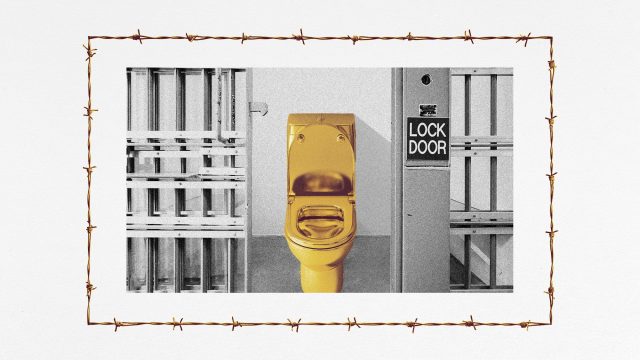
It’s a strange quirk of Donald Trump’s time in the White House that, despite his aggressive “law and order” bluster, it was his administration that championed the First Step Act, the nation’s first major criminal justice reform measure in nearly a decade. Now, six years after signing that bill into law, Trump is once again considering the implications of America’s carceral system — this time as a defendant in a suite of criminal cases featuring the remote, but very real, possibility that he will serve time in prison.
Trump now unquestionably faces the most serious legal peril of his long time in the public eye. It remains decidedly less clear what might happen if the former president of the United States is actually sentenced to an indeterminate time behind bars. As unprecedented as Trump’s various criminal charges over the past several years have been, the prospect of his future incarceration presents a host of unique challenges. For now, Trump’s most acute risk of jail time is not that he will ultimately be found guilty in his ongoing “hush money” trial in Manhattan, but that he will be held in contempt of court for violating a gag order.
While the American prison system has held more than its share of high-profile occupants, keeping a former president in lock-up would put Trump and the nation in profoundly uncharted waters.
What did the commentators say?
The Secret Service has already “held meetings and started planning” how to monitor and protect Trump in the eventuality that he’s sent to some form of “short-term confinement,” ABC News said. However, the Department of Homeland Security, which oversees Secret Service, has yet to discuss “what to do if Trump is convicted and sentenced to prison” for a longer term. There has been at least one “impromptu meeting” involving “officials with federal, state and city agencies” focused solely on “how to move and protect” Trump if he’s remanded to a courthouse holding cell, The New York Times said. If he is eventually sent to prison or jail, it would likely involve “keeping him separate from other inmates, as well as screening his food and other personal items.” While guns are “strictly prohibited in prisons,” the agents assigned to protect him “would nonetheless be armed.”
Ultimately, in deciding if and how to incarcerate Trump, the question is “how to reconcile equal treatment with ensuring a former president’s security,” USA Today said. To that end, a judge could “get creative” and order Trump to “stay in a hotel wing or at a military base, where he is isolated just like any other prisoner but still has Secret Service protection.”
Notably, New York prosecutors have not specifically asked Judge Juan Merchan to actively place Trump in custody for violating his gag order, but asking the court to simply raise the possibility of jail time has been enough to leave the former president “rattled,” Times reporter Kate Christobek told MSNBC.
What next?
Noting that Trump would likely much rather be fighting over what he’s allowed to say, rather than the crimes he’s been accused of committing, Washington Post reporter Devlin Barrett said he’d be “surprised if any judge in any jurisdiction really wants to ‘put him in.'” But “once you start issuing threats and warnings, you either back that up, or you back off.”
Federal officials have declined to comment on any specific plans for protecting Trump in jail, but told ABC News in a statement that as part of its obligation to protect past presidents, Secret Service agents “study locations and develop comprehensive and layered protective models that incorporate state of the art technology, protective intelligence and advanced security tactics to safeguard our protectees.”
Those efforts may all be for naught, however, thanks to a push from the House Homeland Security Committee’s Rep. Bennie Thompson (D-Miss.), who has introduced the Denying Infinite Security and Government Resources Allocated toward Convicted and Extremely Dishonorable (DISGRACED) Former Protectees Act. This would strip all Secret Service protections from anyone convicted of either a state or federal felony.
The Secret Service has begun grappling with how to protect a former president behind bars






